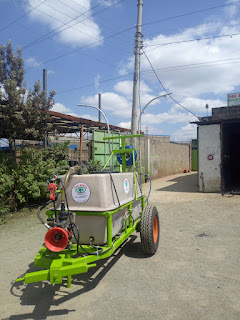Welcome to my blog, where I share my passion for farming, horticulture, and the fascinating world of crop spraying technology! My name is Paul Irungu Mwangi.
I'm thrilled to connect with fellow enthusiasts and knowledge seekers who share a deep appreciation for the agricultural industry. With a Bachelor of Science degree in Horticulture, my journey in this field has been nothing short of incredible.
Having spent several years immersed in various departments of agricultural production, protection, and engineering, I've had the privilege of gaining hands-on experience that has shaped my expertise. Currently, I am fortunate to be a part of the dynamic team at PANAGRIC Kenya Limited, where I continue to apply my knowledge and contribute to the development of innovative solutions in agriculture. To learn more about our company and the incredible products we offer, visit www.panagric.com.
Recognizing the importance of a well-rounded skill set, I also pursued a Master's degree in Entrepreneurship and a postgraduate degree in Agricultural Engineering. These endeavors have equipped me with the necessary tools to not only thrive in the business aspect of this industry but also further elevate my professional acumen.
Through this blog, I aim to share valuable insights, practical tips, and engaging stories from my experiences in farming, horticulture, crop spraying technology and creative engineering. Whether you're a seasoned farmer, an aspiring horticulturist, or simply curious about the fascinating world of agriculture, you've come to the right place.
Join me as we embark on a journey together, exploring the latest advancements, sustainable practices, and hidden gems in the world of farming. Together, let's cultivate knowledge, nurture growth, and sow the seeds of a thriving agricultural community.
I'm excited to have you on board, and I can't wait to connect and listen to your views through this platform. Together, let's harvest the best of what the agricultural world has to offer!













